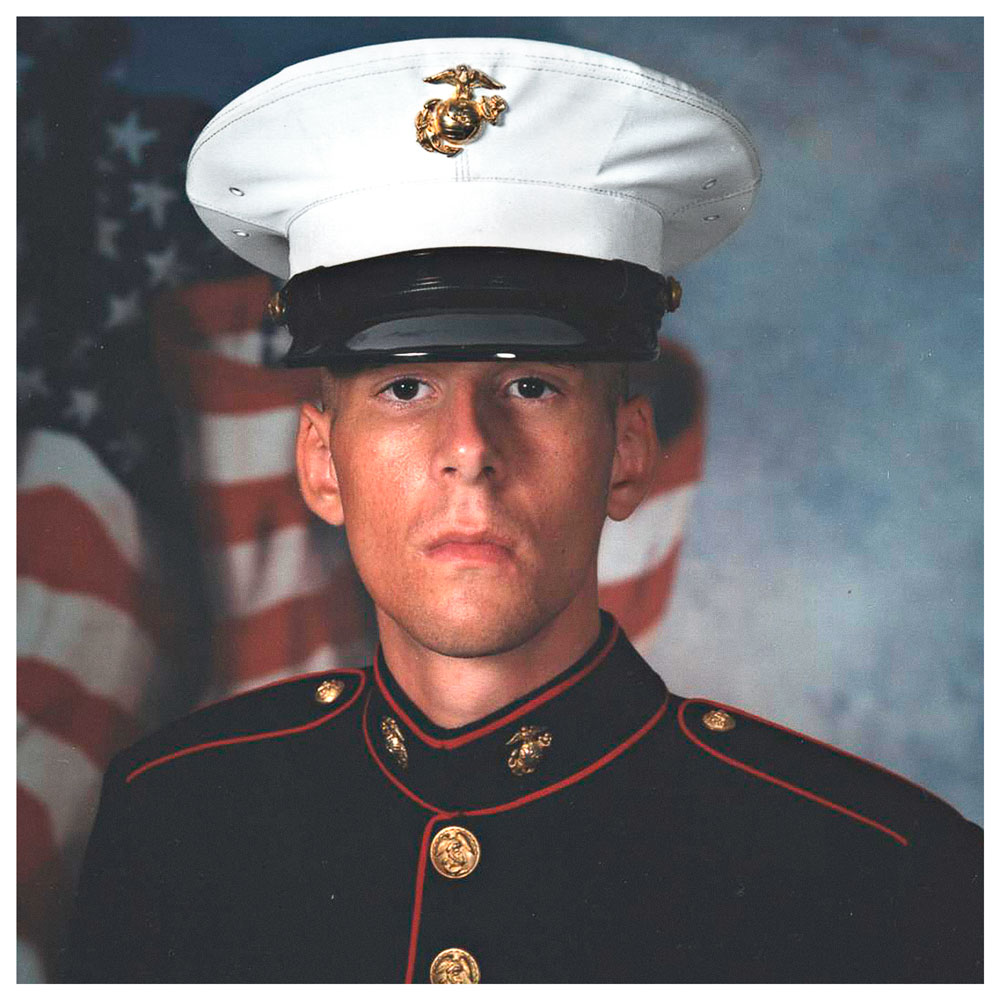Call for Accountability
FAMILIES OF THE FALLEN WANT ANSWERS

Corporal Andrew White was a healthy 23-year-old, gung-ho Marine back from a nine-month tour in Iraq. Like so many of his brothers in arms, he was suffering from the seemingly normal stresses of war—insomnia, nightmares and restlessness. The young corporal turned to the military’s mental health system for help.
Over an 11-month period, Veterans Administration doctors prescribed for Andrew a cocktail of 19 different drugs—including antidepressants, antipsychotics and benzodiazepines (sedatives). The physical, mental and emotional decline was terrifying to his family, and in a few short months he became unrecognizable to them.
Andrew’s mother, Shirley White, recalled: “He couldn’t function. He was a zombie. It was like we were caring for an elderly person.” When she and her husband Stan questioned Andrew’s doctors about the effects of the drugs, “they just said ‘it takes time (for the pills to work)’.”
One of the drugs given to Andrew was the antipsychotic Seroquel, prescribed at more than double the maximum recommended dose for someone “schizophrenic” or “psychotic.” Andrew was neither of these and yet the dosage was continually increased—from 20mg to 1600mg.
In 2011, the Food and Drug Administration issued warnings for Seroquel because it “may be associated with sudden cardiac arrest.” The warning came too late for Andrew. He died suddenly in his sleep in February 2008. The medical examiner ruled his death an “accidental overdose of medication.” Stan and Shirley White have turned their son’s tragic death into a crusade for better care and alternative treatment for other veterans. In 2013, after months of submitting statements and documentation regarding Seroquel to military authorities, the Whites received a letter from US Central Command notifying them that they had removed Seroquel from the “approved” formulary. But the Whites and families of other casualties of the psychiatric drug infiltration of the military are still fighting alongside CCHR to achieve a guarantee that Seroquel and other deadly drugs will not be prescribed.
FACTS
Drugs and death
2012: More soldiers died by suicide than in combat, at the rate of one each day. Suicides by veterans hit 22 per day.
2005–2011: Military prescriptions for mind-altering drugs known to induce suicidal and violent behavior increased 696%.
2004–2012: The FDA received 14,773 reports of psychiatric drugs causing homicidal ideation and homicide, mania and aggression.
RESTORE HUMAN RIGHTS TO MENTAL HEALTH
As a nonprofit mental health watchdog, CCHR relies on memberships and donations to carry out its mission to eradicate psychiatric violations of human rights and clean up the field of mental health. To become part of the world’s largest movement for mental health reform, join the group that has helped enact more than 170 laws protecting citizens from abusive mental health practices.


